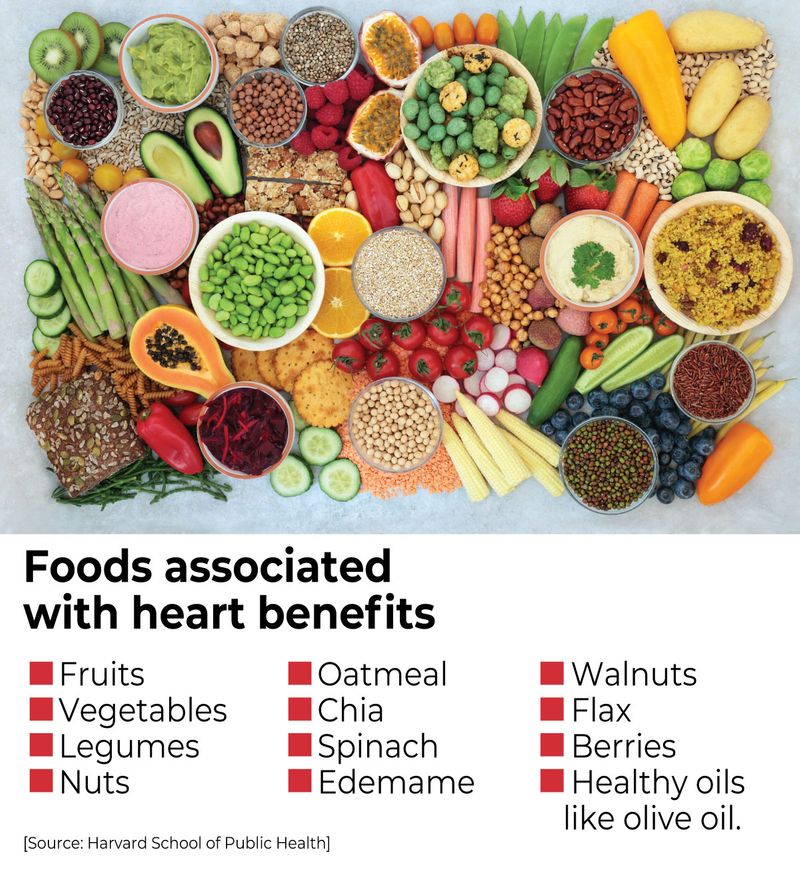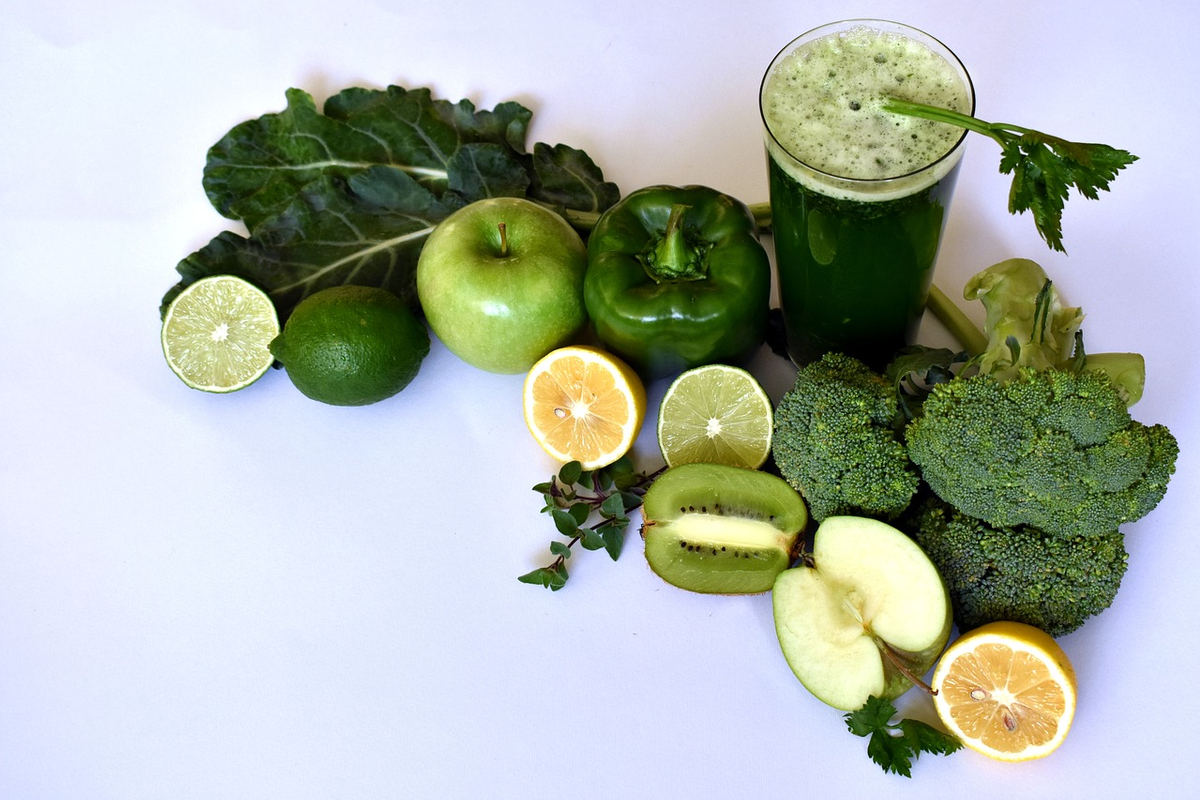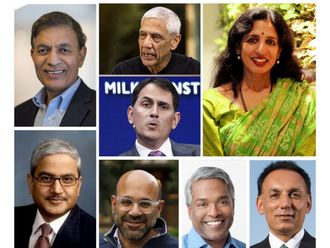
Highlights
- Heart disease accounts for 30% mortality — about one in three deaths — in the UAE.
- Latest studies show that removing meat and animal products from your diet helps lower blood pressure, lessens the risk of diabetes, cuts bad cholesterol, and keeps weight down.
- It doesn't mean, however, that removing animal products today will mean instant health tomorrow.
- Experts point to potential pitfalls: there's a whole lot of unhealthy plant-based diet that can leave you with a higher risk of heart disease, too.
- If you're going vegan for a heart health, some serious planning — and sticking to the plan — is necessary. Know what the experts say
Plant-based meat — or “meat substitutes” — are taking the world by storm. There’s science and capitalism behind the growth of this multi-billion-dollar industry. There are cultural and environmental aspects, too.
First the science: A Harvard study published in March 2021 noted that plant-based diets can help reduce risk of heart disease, a much bigger killer than COVID-19.
“For heart health protection, your diet needs to focus on the quality of plant foods, and it’s possible to benefit by reducing your consumption of animal foods, without completely eliminating them from your diet,” says Dr. Ambika Satija of the Department of Nutrition at the Harvard T.H. Chan School of Public Health.
Risks associated with meat consumption
In general, consumption of red and processed meats have been associated with increased weight gain over time — as well as increased risk of diabetes, heart disease, and colon cancer, according to the Harvard study.
$ 20.7 b
estimated size of the global protein alternatives industryIt’s no wonder: a whole new industry has risen out of protein alternatives. At the end of 2020, the global meat substitutes sector was worth $20.7 billion; it is set to grow to $23.2 billion by 2024, according to market research company Euromonitor. And there are moves among food scientists to make plant-based protein tastier and healthier.
People typically choose these diets because of health concerns, religious restrictions or moral concerns about harming animals.
Generally, removing meat from one's diet resulted in lesser weight gain, studies show. And, going even further, by omitting all animal products from your diet, you could see some even more substantial results.
The Harvard study confirms a 2013 research published in the Permanente Journal, which showed that plant-based diets are “cost-effective, low-risk interventions that may lower body mass index, blood pressure, HbA1C (blood sugar level), and cholesterol levels”. This earlier research also found a plant-based diet may help reduce the number of medications needed to treat chronic diseases and lower ischaemic heart disease mortality rates.

There's a huge amount of innovation and investment (and research funding) in this area, with startup companies trying to make using nanotechnology to find ways to create healthier, better-tasting and more sustainable plant-based protein products that mimic meat, fish, milk, cheese and eggs, thus further fuelling up consumer interest.
Not all plant-based diets are equal
When it comes to turning meat-less, however, not all plant-based diets have the same effect. The Harvard study says it’s down to making good choices. Dr. Ambika Satija pointed to certain foods associated with heart benefits — such as whole grains, fruits, vegetables, legumes, nuts, and healthy oils like olive oil.
This was also confirmed by a study published in the Journal of General Internal Medicine, which examined a selection of randomised controlled trials for correlations in weight loss. Renowned food scientist Prof. David Julian McClements, of the University of Massachusetts Amherst and lead author of a paper in the new Nature journal, Science of Food. "A plant-based diet is not necessarily better than an omnivore diet from a nutritional perspective."
Here's what UAE experts say:
Why is veganism becoming a “fad” — or the “in” thing?
Lubna Abdussalam Dhalani, Clinical Dietitian, Aster Jubilee Medical Centre Bur Dubai:
Vegan diets are growing in popularity today among teenagers and youth, especially females. For many vegans, nutritional choices centre around taking better care of the earth’s resources and the environment, ethical issues about animal care, the use of antibiotics and growth stimulants for the production of animals, the threat of animal-borne diseases, and the health advantages of a plant-based diet. In addition, the potential of allergies from dairy products and lactose intolerance have fuelled the popularity of soy-based dairy substitutes.
Dr. Magdalena Maksymowicz, Dietician at Al Zahra Hospital Dubai:
The awareness of healthy eating habits is growing. A vegan diet is not considered a fad diet; rather, it is an eating pattern that has been more on the rise with the increased awareness on animal welfare and environmental concerns in addition to weight management.
Archana Baju, Clinical Dietician, Burjeel Hospital Abu Dhabi:
Veganism is not a fad. It’s an ideology, religious belief, practice or choice of many people for the sake of environment, to prevent the damage caused to animal species and health benefits. Many opt for veganism for health prospects, weight management etc.

The innovation and growth of the plant-based industry in recent years, along with the increase in health awareness, following the onset of the recent COVID pandemic has been thought to be a key contributory factor for the growing popularity of this type of diet. Nowadays people are more attuned to the link between diet and health.
Michelle Buari, Deputy Director - Nutrition & Lifestyle Management, Zulekha Hospital Dubai & Sharjah:
Essentially, a vegan diet excludes all animal products. This means cutting out not just meat and fish, but also eggs, honey, dairy products, and all animal by-products. The innovation and growth of the plant-based industry in recent years, along with the increase in health awareness, following the onset of the recent COVID pandemic has been thought to be a key contributory factor for the growing popularity of this type of diet. Nowadays people are more attuned to the link between diet and health.
Is it true that ‘going green' leads to health benefits?
Lubna Abdussalam Dhalani
Vegans are generally thinner, have lower serum cholesterol and blood pressure, and have a lower risk of cardio-vascular disease (CVD). Becker muscular dystrophy (BMD) and the risk of bone fracture may be a concern when there is an inadequate intake of calcium and vitamin D.

Where available, calcium- and vitamin D–fortified foods should be regularly consumed. There is a need for more studies on the relation between vegan diets and risk of cancer, diabetes, and osteoporosis. Vitamin B-12 deficiency is a potential problem for vegans, so that the use of vitamin B-12–fortified foods or supplements are essential.
Where available, calcium- and vitamin D–fortified foods should be regularly consumed. There is a need for more studies on the relation between vegan diets and risk of cancer, diabetes, and osteoporosis. Vitamin B-12 deficiency is a potential problem for vegans, so that the use of vitamin B-12–fortified foods or supplements are essential.
To optimise the n-3 fatty acid status of vegans, foods rich in Alpha-linolenic acid (ALA), Docosahexaenoic Acid (DHA)-fortified foods, or DHA supplements should be regularly consumed. Vegans generally have an adequate iron intake and do not experience anaemia more frequently than others. Typically, vegans can avoid nutritional problems if appropriate food choices are made.
Archana Baju
Sticking to veganism is, ultimately, a matter of commitment and determination. Food companies come up with many choices for the consumers; fast food chains, too, have options for vegans. Considering the health benefits and environmental factors many people are choosing veganism and to support them manufactures provide options for consumer satisfaction. But many of these meat alternatives are processed. Be cautious in choosing them.
Dr. Magdalena Maksymowicz
Of course, eating plenty of vegetables has many valuable benefits for our body. There is a very good prophylaxis that protects us against many metabolic diseases.
Michelle Buari, Deputy Director - Nutrition & Lifestyle Management, Zulekha Hospital Dubai & Sharjah
Yes, plant-based and vegan diets have been found to be associated with lower risks of these health conditions. They key benefit of ‘going green’ means the chosen diet is higher in fibre, lower in saturated (unhealthy) fats and salt. Dietary fibre helps with supporting heart health, maintaining blood sugar levels and aiding weight loss or maintenance, all of which have proven health benefits.

What are the immediate benefits of veganism?
Lubna Abdussalam Dhalani
Compared with other vegetarian diets, vegan diets tend to contain less saturated fat and cholesterol and more dietary fibre. However, eliminating all animal products from the diet increases the risk of certain nutritional deficiencies.
Archana Baju
A vegan diet appears to be beneficial due to the intake of protective nutrients like fiber, folic acid, vitamin C, E, Iron (non-heme iron) and other phytochemicals (compounds produced by plants). These are main reasons for the health benefits and many researches have proven that going green is good for health and benefits including improved cardiovascular health, weight management, lessens the risk of many cancers, diabetes etc. In general, it has been observed that vegans had lower risks of obesity, hypertension, cardiovascular diseases, diabetes, arthritis, cancer and heart disease, this is because of the protective substances found in fruits, vegetables, vegetable oils, whole grains or other plant based products.

In general, it has been observed that vegans had lower risks of obesity, hypertension, cardiovascular diseases, diabetes, arthritis, cancer and heart disease, this is because of the protective substances found in fruits, vegetables, vegetable oils, whole grains or other plant based products.
Dr. Magdalena Maksymowicz
A vegan diet contains more antioxidants and fiber, is richer in potassium, magnesium, folates and vitamins A, C and E. It is also a good way to reduce excessive body fat and maintain healthy body weight if it is a well-balanced vegan diet avoiding processed and fried foods. When following a diet, we also focus more on the selection of products and checking the nutritional value of products.
Michelle Buari
The immediate effect of adopting a vegan diet is an increase in energy levels. This is also accompanied by change in bowel habits to a more regular and healthier pattern ensuring good digestive health. These benefits are associated with the detoxification process that occurs as you substitute animal products with whole foods higher in fibre and lower in fat and sugar.
Veganism at first glance might seem restrictive and may include risk of nutrient deficiencies due to the exclusion of certain food groups. Nutrients such as omega-3, iron, calcium, iodine, and vitamin B12 are of concern as they are more difficult to obtain from plant-based foods.
What are the 'side effects' of veganism?
Lubna Abdussalam Dhalani
Micronutrients of special concern for the vegan include vitamins B-12 and D, calcium, and long-chain n-3 (omega-3) fatty acids. Unless vegans regularly consume foods that are fortified with these nutrients, appropriate supplements should be consumed. In some cases, iron and zinc status of vegans may also be of concern because of the limited bioavailability of these minerals.
Archana Baju
However these diets are low in fat, protein, omega 3 fatty acids, calcium, vitamin D, Vitamin B12 and Iron (heme iron). Strict veganism in pregnancy, postpartum, breast feeding, infants and young children might lead to malnutrition and nutritional deficiencies; not only to the vulnerable but healthy population too. So careful planning is required for a balanced vegan diet.

Vegan diets can cause deficiencies, which is associated with insufficient iron, essential fatty acids, vitamin B12, calcium, iodine or zinc. It is very important to consume protein properly, which is the basis for building our muscle mass.
Dr. Magdalena Maksymowicz
Vegan diets can cause deficiencies, which is associated with insufficient iron, essential fatty acids, vitamin B12, calcium, iodine or zinc. It is very important to consume protein properly, which is the basis for building our muscle mass.
Michelle Buari
Veganism at first glance might seem restrictive and may include risk of nutrient deficiencies due to the exclusion of certain food groups. Nutrients such as omega-3, iron, calcium, iodine, and vitamin B12 are of concern as they are more difficult to obtain from plant-based foods.
What are the things one needs to know before switching over a vegan diet?
Lubna Abdussalam Dhalani
To avoid B-12 deficiency, vegans should regularly consume vitamin B-12–fortified foods, such as fortified soy and rice beverages, certain breakfast cereals and meat analogs, and B-12–fortified nutritional yeast, or take a daily vitamin B-12 supplement.
To ensure adequate calcium in the diet, calcium-fortified plant foods should be regularly consumed in addition to consuming the traditional calcium sources for a vegan (green leafy vegetables, tofu, tahini). The calcium-fortified foods include ready-to-eat cereals, calcium-fortified soy and rice beverages, calcium-fortified orange and apple juices, and other beverages.

Archana Baju
Before switching to vegan, one should clearly understand the diet, options and limitations.
- One need not immediately jump to veganism; slowly introduce plant-based products, replacing the animal produces. Get used to the diet changes and understand the available options.
- Vitamin B12 and Iron deficiency might be faced. Plan supplements accordingly (consult a physician). Know the different plant-based proteins like soy, lentils, beans, quinoa etc.
- Practice reading nutrition labels for vegan products, because animal derived products can be present in the packed foods.
- Meat alternatives are processed with additives and preservatives, read the labels and go fresh as much as possible.
- When dinning out don’t forget to inform your food restrictions to get rid of hidden animal products.
Dr. Magdalena Maksymowicz
When switching to a vegan diet, we must know how to properly balance meals, how to choose high-quality products and what cooking method to choose. Support from a doctor and a dietitian is very important. By following the results of your laboratory tests and having a proper nutritional plan, you will avoid any undesirable effects. Let us remember that each of us requires individual nutrition needs. Sometimes we have to use supplements to get best effect.
Michelle Buari
Switching to a vegan diet is a personal choice and a lifestyle change. It requires careful planning to not only guarantee inclusion of a variety of plant foods to ensure that the diet is healthy and balanced — but also to ensure continued sustainability, so as to support healthy living at every age and life stage.
What supplements does one need to take after becoming vegan?
Lubna Abdussalam Dhalani
To ensure an adequate vitamin D status, especially during the winter, vegans must regularly consume vitamin D–fortified foods such as soy milk, rice milk, orange juice, breakfast cereals, and margarines that are fortified with vitamin D. Where fortified foods are unavailable, a daily supplement of 5–10 μg vitamin D would be necessary. The supplement would be highly desirable for elderly vegans.
A vegan should regularly consume plant foods naturally rich in the n-3 fatty acid Alpha-Lipoic Acid (ALA), such as ground flaxseed, walnuts, canola oil, soy products, and hemp seed–based beverages. In addition, it is recommended that vegans consume foods that are fortified with the long-chain n-3 fatty acid docosahexaenoic acid (DHA), such as some soy milks and cereal bars. Those with increased requirements of long-chain n-3 fatty acids, such as pregnant and lactating women, would benefit from using DHA-rich supplements.
Because of the high phytate content of a typical vegan diet, it is important that a vegan consumes foods that are rich in zinc, such as whole grains, legumes, and soy products, to provide a sufficient zinc intake. Benefit could also be obtained by vegans consuming fortified ready-to-eat cereals and other zinc-fortified foods.
Archana Baju
Supplements to consider are Calcium, Vitamin B12, Iron, Vitamin D, Iodine, Zinc and Omega 2 fatty acids. A well-planned balanced vegan diet can fulfill the nutritional needs. But most vegans find it hard to meet the dietary requirements. Consult a dietitian and physician to understand the diet and supplement regime. Few tips to remember:
- Make simple meal plans, plan for tofu stir-fry, beans casserole, vegetable lasagna, veggie pizza etc.
- Make simple meal plans, plan for tofu stir-fry, beans casserole, vegetable lasagna, veggie pizza etc.
- Plan for variety of plant-based protein choices — variety of beans, lentils, nuts and seeds.
- Get calcium from fortified products like soy milk, tofu, and some breakfast cereals and orange juices. Dark-green leafy vegetables like collard greens, spinach, and kale are sources, too. Include unsalted nuts. Munch them as snacks or add to salads for additional protein, healthy fats and fibre.
Dr. Magdalena Maksymowicz
“When choosing supplements, the best solution is to consult a specialist who will adequately explain to you what supplement is necessary and how to use it. Generally, vegans often might need to add vitamin b12 supplement, omega 3, and calcium. In case of very low protein intake, protein supplements or powders can be added too.”
Michelle Buari
Nutritional supplements are not essential provided the diet is centred on a variety of foods such as beans, pulses, nuts, seeds, wholegrains e.g. oats, rice, pastas, bread, fruits and vegetables. These are sufficient to provide all the nutrients the body needs. If, however, the diet is not balanced, a supplement depending on the specific nutrient inadequacies will be required. A visit to a medical professional such as a dietitian or doctor is advised.
• Vitamin B12
• Calcium
• Iodine
• Iron
• Vitamin D
• Zinc
• Omega-3 fatty acids








